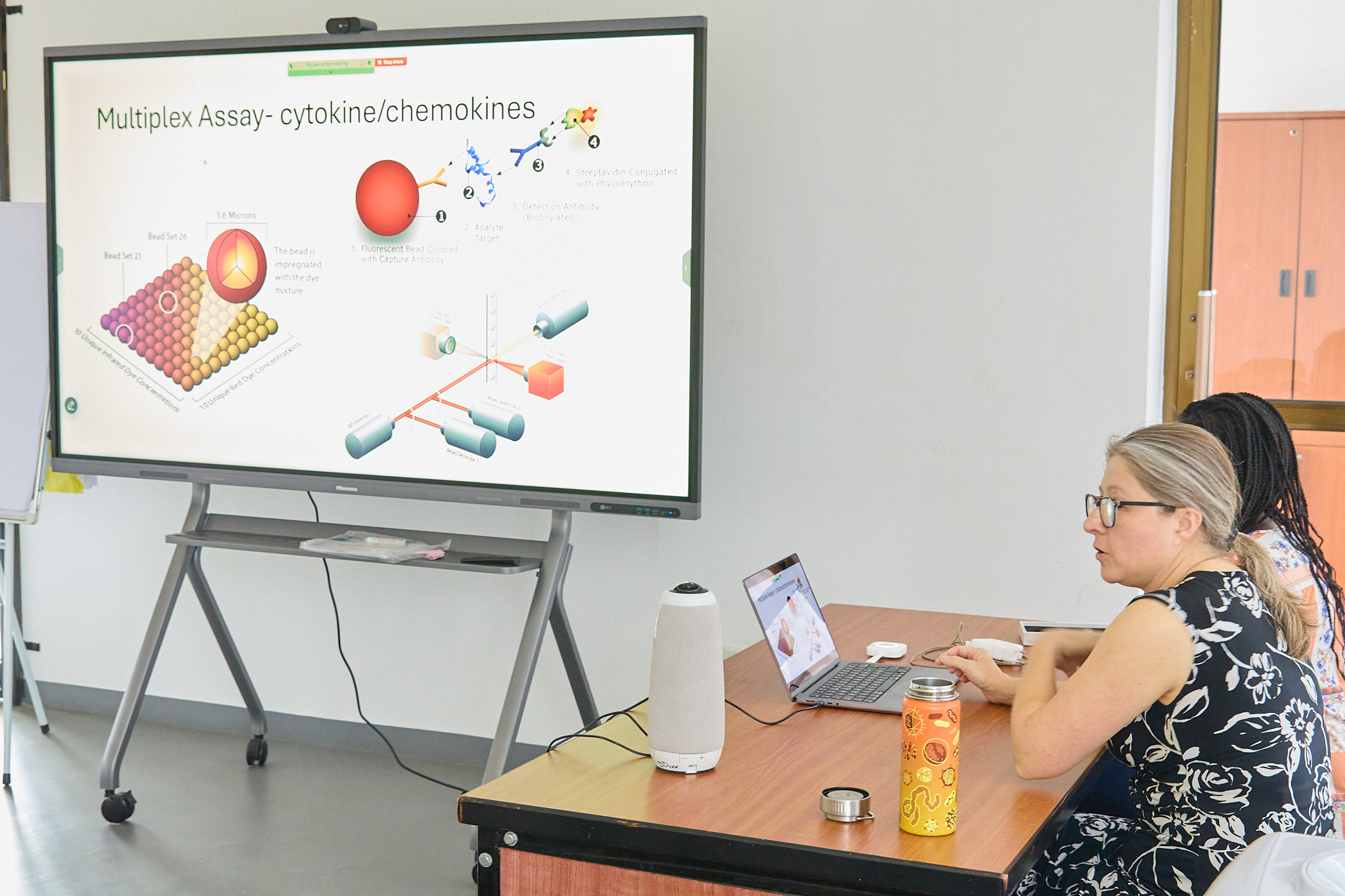
TALK: Unlocking the science behind the body’s viral defenses

On May 8 2025, the Ifakara Health Institute proudly hosted a high-level scientific talk focusing on the “immunology of acute viral infections”, featuring esteemed pediatric infectious disease expert Prof. Anita McElroy from the University of Pittsburgh. Held at Ifakara’s Bagamoyo branch, the event brought together health researchers and professionals to delve into how the human immune system responds to viral threats.
Layers of immune defense: From barriers to cells
Prof. McElroy outlined the multi-layered structure of the human immune response, emphasizing that our defense against viruses starts even before cells are involved.
“Physical barriers like skin, saliva, mucus, and stomach acid form the first line of defense,” she noted. If viruses bypass these barriers, the innate immune system responds rapidly—within minutes to hours—with tools like interferons, natural killer cells, and complement proteins.
This is then followed by the adaptive immune response, which takes longer to activate but provides targeted and long-lasting protection through T cells and B cells.
Bridging innate and adaptive immunity
A central theme of Prof. McElroy’s talk was the crucial role of antigen-presenting cells (APCs)—such as dendritic cells and macrophages. These cells serve as a bridge between the fast, general innate response and the slower but precise adaptive response.
“These cells recognize invaders, process them, and then present viral fragments to T and B cells,” she explained. “That process is essential for developing a specific immune memory.”
Why timing matters
Prof. McElroy also explained the difference between primary and amnestic immune responses. The primary response occurs when the body encounters a pathogen for the first time—often during childhood. It takes longer to mount and is less efficient. In contrast, amnestic responses are quicker and stronger, thanks to immune memory.
She emphasized that studying rare emerging viruses like Ebola, Kyasanur Forest Disease Virus (KFDV), and Rift Valley Fever Virus (RVFV) provides unique opportunities to observe primary immune responses in adults—something that’s typically hard to do.
Strengthening Africa’s role in immunology research
The talk not only deepened scientific understanding but also underscored the value of conducting immunology research in African settings. With institutions like Ifakara at the forefront, Tanzania is playing a critical role in shaping the global response to infectious diseases.
